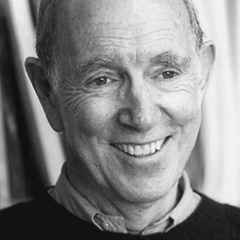
This research guide will point you toward online research resources and strategies available to you as scholars doing research at Pepperdine.
Use this guide throughout the research process to help you have the best support for your thesis and research.

Access to encyclopedias and specialized reference sources for multidisciplinary research.
Access to a country-by-country survey of educational systems of 233 countries.

Cole, Michael (1938 - ) Michael Cole's research has focused on the role of culture in human development with a special emphasis on the role of education as a sociocultural institution. (https://naeducation.org/member/michael-cole)
Dewey, John (1859 -1952) John Dewey was one of American pragmatism’s early founders, along with Charles Sanders Peirce and William James, and arguably the most prominent American intellectual for the first half of the twentieth century. (https://plato.stanford.edu/entries/dewey/)

Engeström, Yrjö (1948 - ) Known for the theory of expansive learning and for the interventionist methodology of developmental work research. (https://researchportal.helsinki.fi/en/persons/yrj%C3%B6-engestr%C3%B6m)
Gardner, Howard (1943 -) Howard Gardner is the John H. and Elisabeth A. Hobbs Research Professor of Cognition and Education at the Harvard Graduate School of Education. In 1967, he was a founding member of Harvard Project Zero (HPZ), a research group focused initially on understanding the nature of artistic knowledge,; but one which now covers a wide range of educational and epistemological issues. (https://www.howardgardner.com/)
Lave, Jean (BD unknown - )Jean Lave is a social anthropologist and learning theorist who believes that learning is a social process, as opposed to a cognitive one. (https://www.pedagogy4change.org/jean-lave/)
Montessori, Maria (1870 - 1952) Dr. Maria Montessori, an Italian physician and educator, is celebrated for her innovative educational method that mirrors how children naturally learn. (https://amshq.org/about-montessori/history-of-ams/about-dr-maria-montessori/)
Papert, Seymour (1928 - ) Papert’s career traversed a trio of influential movements: child development, artificial intelligence, and educational technologies. Based on his insights into children’s thinking and learning, Papert recognized that computers could be used not just to deliver information and instruction, but also to empower children to experiment, explore, and express themselves. (https://news.mit.edu/2016/seymour-papert-pioneer-of-constructionist-learning-dies-0801)
Piaget, Jean (1896 -1980) Jean Piaget’s theory of cognitive development proposes that children progress through four distinct stages of cognitive development, each reflecting an increase in the sophistication of children’s thought processes. (https://www.simplypsychology.org/piaget.html)
Rousseau, Jean-Jaques (1712 - 1778) Jean-Jacques Rousseau remains an important figure in the history of philosophy, both because of his contributions to political philosophy and moral psychology and on account of his influence on later thinkers. (https://plato.stanford.edu/entries/rousseau/)
Vygotsky, Lev (1896 - 1934) Vygotsky’s theory of cognitive development emphasizes the role of social interaction and culture in learning. (https://www.simplypsychology.org/vygotsky.html)
Wenger, Etienne (1952 - )Etienne Wenger has been working on developing the theory and practice of social learning for more than three decades. The social perspective that emerges from this work is profoundly humanistic. (https://www.wenger-trayner.com/etienne/)
Explore. Discover. Create.
24255 Pacific Coast Highway, Malibu, CA 90263 Phone: 310.506.7273Copyright © 2022 Pepperdine University